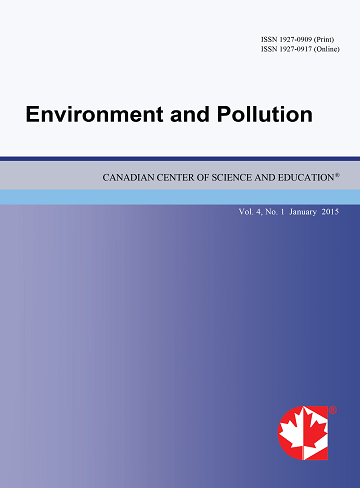Theorizing the Effect of Smog on Public Health in Lahore, Pakistan
- Ali Akbar
Abstract
SMOG is a form of horrible air pollution that has recently been declared as a public health emergency in Southeast Asia. This article will talk about the drawback of smog pollution and its outcomes on human health. Smog has become the most important issue for Pakistan, from some past years. Since 2011, nearly all areas of Pakistan especially Lahore has been repeatedly affected by smog. In Many previous types of research, the focus is on Smog and, its source, alarm systems, and safeguard, when a risky Environmental event like smog, the conclusion may be riskier than the event itself will cause if people take irrational actions due to lack of relevant awareness. So, examine people's attitudes and a reaction to smog is theoretically and realistically meaningful. Recent projects of coal as a source of energy, high rates of outpouring from unmonitored industries, a large number of automobiles on roads, play a major role in trends of deforestation to construct new roads and recently the burning of crops leftovers has added fuel to the fire. Vehicles increase by 9% compared to the last five years due to a lack of public transport systems. Pakistan, India, and Bangladesh emit the most hydrocarbons in their fuel emissions compared to SAARC (South Asian Association for Regional Cooperation) countries. As a result of these problems, Pakistan is facing its relatives, losses and various dangerous human diseases.
- Full Text:
 PDF
PDF
- DOI:10.5539/ep.v9n2p14
Journal Metrics
Index
- Academic Journals Database
- Berkeley Library
- CAB Abstracts
- CAS (American Chemical Society)
- CNKI Scholar
- COPAC
- CrossRef
- DTU Library
- Elektronische Zeitschriftenbibliothek (EZB)
- EuroPub Database
- Excellence in Research for Australia (ERA)
- Genamics JournalSeek
- Google Scholar
- Harvard Library
- Infotrieve
- Jisc Library Hub Discover
- JournalGuide
- JournalTOCs
- LOCKSS
- Max Planck Institutes
- Mir@bel
- PKP Open Archives Harvester
- Pollution Abstracts
- Publons
- Pubmed journal list
- ROAD
- Scilit
- SHERPA/RoMEO
- Standard Periodical Directory
- Stanford Libraries
- UCR Library
- Ulrich's
- UniCat
- Universe Digital Library
- UoS Library
- WorldCat
- Zeitschriften Daten Bank (ZDB)
Contact
- Albert JohnEditorial Assistant
- ep@ccsenet.org
